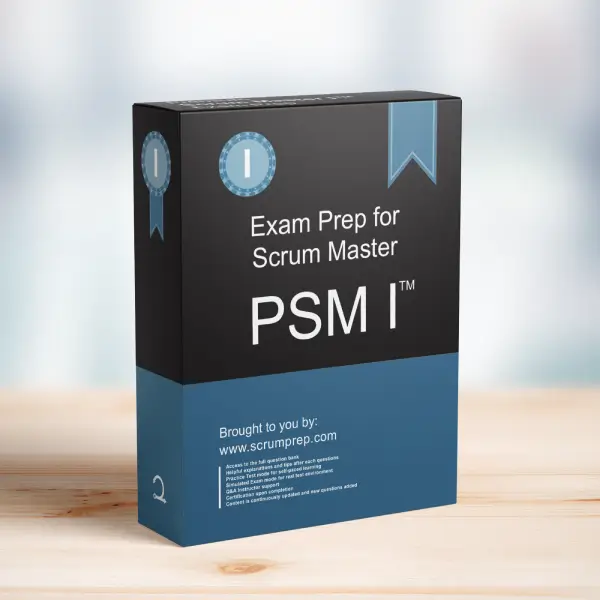Absence of a Project Manager Role in Scrum
In Scrum, roles are clearly defined to promote a collaborative and self-managing environment. The framework emphasizes the responsibilities of the Product Owner, Scrum Master, and Developers. Notably, Scrum does not include a traditional project manager role.
Exam Question
True or False: Scrum does NOT have a role called “project manager.”
(choose the best answer)
A. True
B. False
Correct Answer
A. True
Explanation
Scrum is a framework designed to promote teamwork, accountability, and iterative progress toward a well-defined goal. It diverges from traditional project management approaches by eliminating the project manager role and redistributing its responsibilities among the Scrum Team.
Correct Answer:
A. True:
Scrum does not include a role called “project manager.” Instead, the responsibilities typically associated with a project manager are distributed among the Product Owner, Scrum Master, and Developers. This structure supports self-management and collective accountability within the team.
Incorrect Answer:
B. False:
This is incorrect because Scrum intentionally excludes the project manager role to foster a more collaborative and self-managing team environment. The absence of this role encourages all team members to take ownership of their work and contribute to the success of the project.
Responsibilities in Scrum
- Product Owner: Maximizes the value of the product by ensuring the Product Backlog is well-ordered and refined to the level needed. Acts as the primary liaison between stakeholders and the Scrum Team. Optimizes the value of the work the Scrum Team does by making informed decisions on the Product Backlog.
- Scrum Master: Coaches the team in Scrum practices, removes impediments, and facilitates team events to ensure productivity and adherence to Scrum principles. Helps everyone understand Scrum theory and practice within the Scrum Team and the organization.
- Developers: Collaborate to create the Sprint Goal and the Sprint Backlog, ensuring all work aligns with the Sprint Goal. Complete all tasks necessary to deliver a potentially shippable Increment, including ensuring that all Product Backlog items meet the Definition of Done.
Relevance to the PSM I Exam
Understanding the absence of a traditional project manager role in Scrum is crucial for the PSM I exam. This knowledge highlights the fundamental differences between Scrum and traditional project management methodologies, emphasizing self-management and collective responsibility within the Scrum Team.
Key Takeaways
- No Project Manager Role: Scrum does not include a traditional project manager role. Responsibilities are distributed among the Product Owner, Scrum Master, and Developers.
- Promotes Self-Management: The absence of a project manager encourages self-management and collective accountability within the Scrum Team.
- Focus on Collaboration: Scrum’s structure fosters a collaborative environment where all team members contribute to the project’s success.
Conclusion
Scrum’s exclusion of the project manager role underscores its focus on self-management, collaboration, and accountability. By understanding this key difference, you can better appreciate the principles and practices that make Scrum an effective framework for managing complex projects.
For comprehensive preparation and practice exams, check out PSM I Exam Prep to enhance your understanding and application of Scrum principles.



